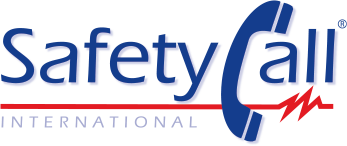SafetyCall International will be exhibiting at the 2014 IFT Annual Meeting, a conference which brings together professionals throughout the food industry, including experts in R&D, product development, and QA/QC. SafetyCall will be at Booth #100. Stop by to meet some of our key staff members and learn how we can help support product surveillance for reportable foods and dietary supplements.
Additionally, Dr. Rick Kingston will be presenting during two sessions at the show.
Energy Drinks and Caffeine: Understanding Adverse Events Incident Data
Monday, June 23, 2014
8:30 AM
Allegations of adverse events involving caffeinated beverages have been reported in multiple venues including direct reports to the FDA, reports to poison centers, emergency room visit data, and media or high profile litigated events reported in the lay press. Although there are strengths and limitations associated with each category of reporting, it’s important for professionals in the field to understand what they are and whether or not data are being accurately depicted. Lastly, is causation an appropriate term for any analysis of these incident data? This presentation addresses these questions and ore in regards to the accuracy of the reports and their ability to confirm toxicity or alternatively, possibly document safety.
Adverse Events – When Unexpected Dietary Supplement “Toxicity” Sets Off an Alarm
Tuesday, June 24, 2014
10:30 AM
Unexpected safety concerns for dietary supplement and functional food products / ingredients may be detected via post-market surveillance processes, including Adverse Event Reports (AERs). AERs may be proactively submitted to regulatory agencies, or gleaned from the scientific literature, popular press, or via reputable corporate product stewardship functions. There are many challenges with AERs; the quantity and quality of information, under-reporting or dismissal of minor events that may be a harbinger of more serious concerns, multi-ingredient products and product of questionable quality, and the lack of controlled human clinical studies. These challenges when aggressively applied to risk mitigation strategies can lead to inappropriate or premature conclusions. The search for causality should encompass what may be found in the literature, such as via standardized and un-biased evidence-based review methodology designed to provide a scientifically-valid and defensible process. An EBR is meant to be broad, including information from human clinical trials, post-marketing surveillance data, adverse events, pharmacological data, reproductive toxicity data and pharmacokinetics data. After the emergence of a potential safety signal, all relevant data must be carefully evaluated in an impartial manner, and an appropriate response needs to be formulated. All of the affected stakeholders must be included such as consumers, clinicians, manufacturers and regulators. Because of the challenges listed above, the causality relationship between the suspected product/ingredient may be inconclusive which when incorrectly applied, may remove a harmless product/ingredient or allow a truly unsafe product/ingredient to remain on the market. Examples to illustrate these points will be discussed.
Dr. Kingston joins Health Canada regulators, Integrative Medicine Experts and representatives of the US Pharmacopeia to discuss this important topic.


